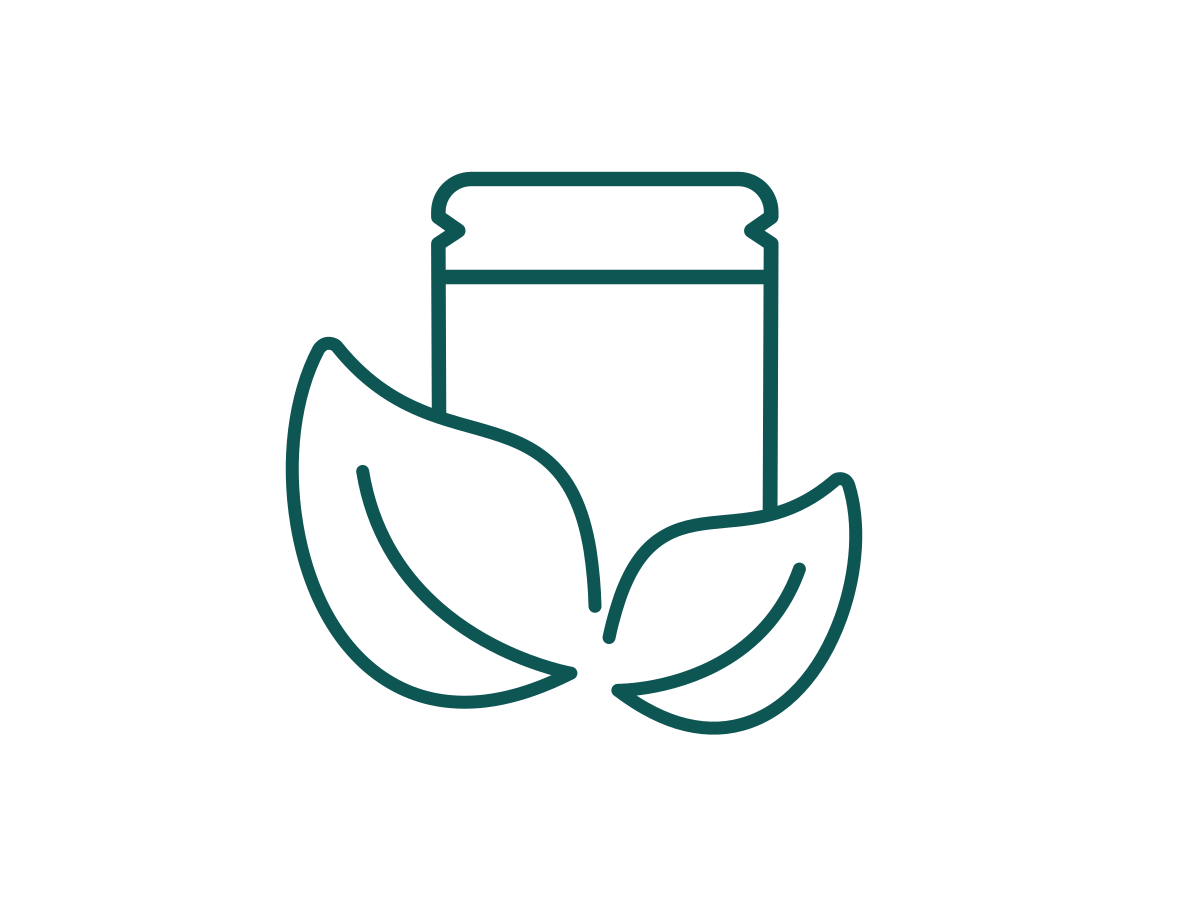
"OK biobased" seal: environmental commitment with one click
What does the "OK biobased" seal say about your packaging?
Protective power from plants
Bio-based plastics are completely or partially obtained from starch- and cellulose-rich plants such as corn, potato starch or sugar cane. In some cases, residues and waste from agriculture are also used. To determine the exact bio-based content of a plastic, the C14 activity of the raw materials is measured:
Young carbon (0-10 years) from renewable raw materials (e.g. from plants), has a C14 activity of about 100 %. Old carbon from fossil raw materials (millions of years old), on the other hand, has a C14 activity of about 0 %. So if a package has a C14 activity of 80 %, it means that it consists of 80 % renewable carbon and 20 % fossil carbon.

Who stands behind the seal?
With the "OK-biobased" seal, TÜV Austria (formerly Vinçotte) offers a certification in which the biobased content of a plastic is tested and confirmed. The testing procedures of the independent and international testing and certification company ensure transparency and help consumers to make truly sustainable purchasing decisions.
Show packaging transparency: with our "Ben" material
Ben's biobased share is in the second highest star category (3 out of 4) and is therefore allowed to carry the recognised OK biobased seal! Would you like to have an organic packaging made from renewable raw materials? Then configure it in the shop now!

Biobased vs. biodegradable

Biobased: Where do the materials come from?
- Materials come from renewable raw materials such as cane sugar, starch & co.
- The use of fossil raw materials is reduced
- Additional CO2 emissions are reduced

Biodegradable: What happens to materials after they are used?
- Materials decompose through biological mechanisms
- After decomposition, water, biomass, minerals and carbon dioxide are left behind
- Industrially compostable is a special case of biodegradable and means that the materials decompose after 4-5 weeks at 65°C or after 12 weeks at 45°C
This is how you benefit from the "OK biobased" seal
Increase trust in your brand

According to a recent study by the consultancy Simon-Kucher & Partner (2021), only 11% of consumers feel well informed about the sustainability of packaging. We want to change that: By using the recognised OK biobased seal from TÜV Austria, you can make your commitment more comprehensible to customers and strengthen your image - easily and without extra effort.
In 3 steps to the seal
Here are questions & answers
What are the advantages of bio-based plastic?
Bio-based plastic reduces additional CO2 emissions compared to conventional plastic made from petroleum. The reason for this is that millions of years of CO2 is bound in this petroleum. When the plastic is burned after its useful life, the CO2 bound in the petroleum is additionally released into the atmosphere.
In contrast, starch from plants is used to produce bio-based plastic. Plants need CO2 for their growth, which they absorb from the atmosphere. When the plastic is burnt, only as much CO2 is released as was previously absorbed by the plant. This creates a kind of CO2 cycle.
In this way, our Ben material made of paper and bioplastic also contributes to reducing additional CO2 emissions.
How much does it cost to use the seal?
For only 0.02 €/ piece you can print the "OK biobased" seal on your packaging.